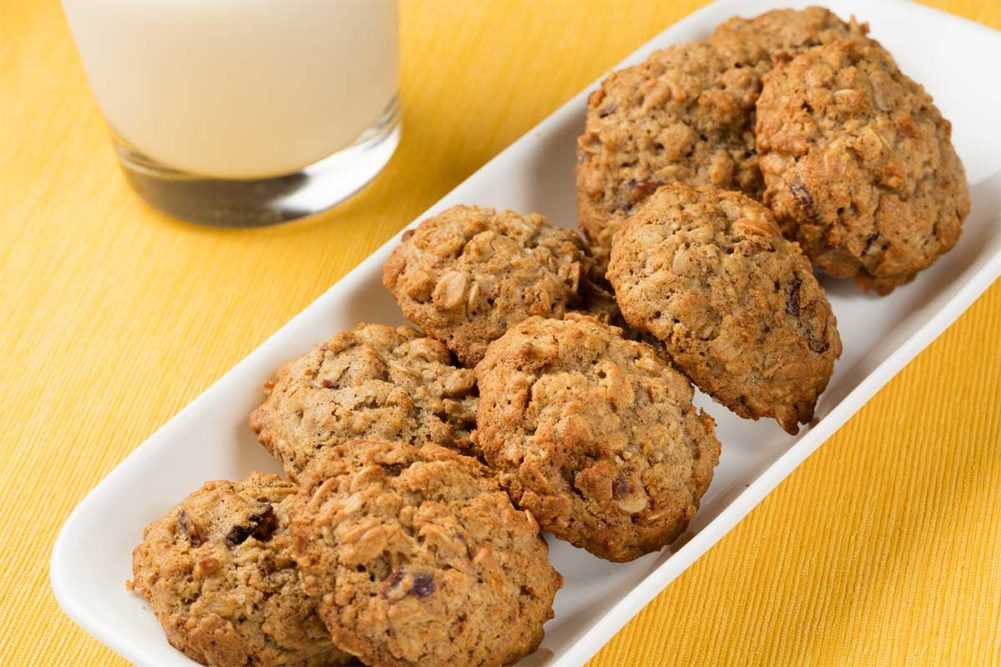It took a pandemic to get many consumers to finally believe in the power of digestive health. Science shows that abundant, flourishing good gut bacteria promote a healthy immune system by staving off pathogens, such as foodborne microorganisms and viruses. It’s no wonder that foods designed to promote digestive health are forecast to be one of the hottest food categories in the coming year.
“Ongoing anxiety stemming from the COVID-19 pandemic is continuing to push consumers toward prioritizing their immune health,” said Lu Ann Williams, global insights director, Innova Market Insights. “Immunity-boosting ingredients will play a significant role for the coming year, while research and interest in the role of the microbiome and personalized nutrition as ways to strengthen immunity will accelerate.”
Through its OutsideVoice consumer insights platform, ADM identified digestive health specifically related to the gut microbiome as one of five consumer trends expected to emerge in 2021. A quarter of global consumers suffer from digestive health issues, and half said it has a moderate to severe impact on their overall health, ADM found.
“The underlying driver of this consumer interest is the acknowledgement that health begins with the products we consume, and consumers are trying to be more proactive in their health,” said Mark Rodhe, global segment leader, human health, DuPont Nutrition & Biosciences. “With health beginning in the gut and emerging science on the broad implications of the gut microbiome, consumers are looking for solutions that can impact their microbiome and have a positive effect on their health and well-being.”
Uplift Foods, New York, recognized this growing trend even before the pandemic and launched Gut Happy Cookies in April 2020. Developed by dietitians, these 100% plant-based and high-fiber sandwich creme cookies include a proprietary blend of four diverse prebiotic-rich ingredients — lupini beans, tigernuts, tapioca fiber resistant starch and kiwi fruit — along with 1 billion colony-forming units of probiotics. The golden whole kiwi fruit powder is sourced from New Zealand and provides a scientifically proven blend of flavonoids and fiber that exert a prebiotic effect in the gut, according to the company.
As consumers gain awareness of how their guts impact their health, formulators need to understand the world of the microbiome and how to encourage its flourishing with bakery and snack products.
Trillions of bacteria inherently reside in the gastrointestinal system. This microbial community — the microbiome — has distinct physio-chemical properties that help regulate an array of bodily functions. These healthy gut bacteria are often supplemented through the consumption of probiotics, live microorganisms, most often lactic acid bacteria, which when consumed in adequate amounts, are believed to help create a better-balanced microbiome.
Over the past decade, probiotics have gone mainstream, albeit not within the baked goods segment because of limited availability of heat-resistant strains. Prebiotics, on the other hand, which are the fuel for probiotics, are perfectly poised for application in baked goods. Prebiotics are frequently equated with dietary fibers, but only a subset of dietary fibers qualify as prebiotics. Further, according to the broad scientific definition from the International Scientific Association for Probiotics and Prebiotics (ISAPP), prebiotics need not be forms of dietary fiber.
“There are very few fermentable fibers, so-called prebiotics, that specifically nourish the beneficial bacteria being naturally present in the intestinal tract, ensuring their optimal development,” said Anke Sentko, vice president regulatory affairs and nutrition communication, Beneo. “The promotion of growth of these beneficial bacteria includes the natural production of healthy metabolites to nourish the gut.”
Postbiotics are an entirely new category of functional ingredients. They do away with the need to add probiotics by being the healthy metabolites that the microbiome produces, the compounds that possess the actual health benefit and are necessary for metabolism. This category includes an array of enzymes, peptides, organic acids, fatty acids and more.
“Postbiotics are the new kids on the block,” said Justin Green, director of scientific affairs, Cargill Health Technologies. “However, while consumer awareness is still in its infancy, this emerging health ingredient has a lot to offer the immune and gut health space. Postbiotics provide increased stability and consistency as compared to the more familiar probiotics.”
This article is an excerpt from the February 2021 issue of Baking & Snack. To read the entire feature on pre- & postbiotics, click here.






